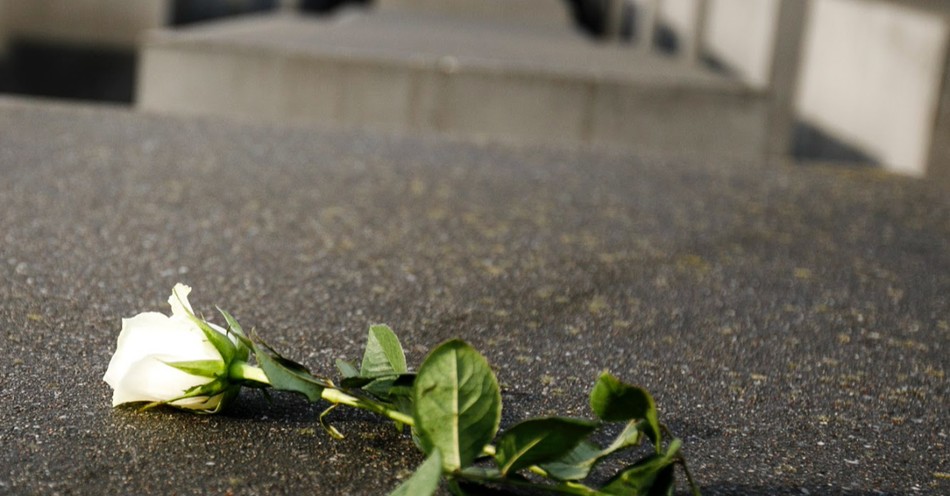Millions of religious and ethnic minorities—men, women, and children—herded on to trains, hauled away to concentration camps for “reeducation,” used for slave labor, their heads shaved and hair used for products sold to support the government. Women forcibly sterilized, babies forcibly aborted. All of this sounds familiar doesn’t it?
It should, but according to a survey released last week, it likely will not. A significant number of U.S. adults under 40 lack “basic” knowledge of the Holocaust, which left 6 million Jews dead during World War II, as well as millions of members of other ethnic and social groups. This 50-state poll, commissioned by the Conference on Jewish Material Claims Against Germany, found that 63 percent of U.S. adults between 18 and 39 years old did not know that 6 million Jews were killed during the Holocaust. Forty-eight percent could not name even one of the more than 40,000 concentration camps and ghettos operating in Europe in the 1930s and ’40s.
In other words, for a growing number of Americans, the words “Auschwitz” and “Dachau” don’t ring a bell, much less what happened behind their gates.
Does it really matter that a generation has emerged lacking basic history? After all, it actually makes for some pretty funny man-on-the-street interviews on “Jimmy Kimmel Live.”
Of course, it’s a bit more serious than that. Just in the past several months, for example, among the statues torn down and defaced by rioting mobs include statues of Frederick Douglass, Abraham Lincoln, and the Massachusetts 54th Regiment statue in Boston. The 54thRegiment, by the way, was a Union Regiment in the Civil War made up of African Americans, many of whom gave their lives fighting for freedom and the end of slavery.
In other words, the ignorance of history means the inability to distinguish between heroes and villains. But it’s even worse than that. Earlier, when I was describing trains and camps and forced labor and torture and death, I wasn’t talking about Germany or Poland from the 1940s. I was talking about China’s treatment of Muslim Uighurs and other religious minorities right now.
Historical ignorance not only prevents us from learning from the evils of the past, we risk not even being able to recognize the evils of the past when they reemerge in our time. In Nigeria, for example, tens of thousands of Christians have been and, as recently as last week, are still being abducted, raped, and murdered by militant Islamists. The word that describes this is genocide, historically coined along with the phrase “never again.” Yet, in China and Nigeria genocide is happening again.
Last week, at a media-awareness event sponsored by the International Committee on Nigeria, former U.S. Representative Frank Wolf called on President Trump to create a special envoy on Nigeria, to coordinate with other nations and NGOs to bring pressure to bear on the Nigerian government to put an end to this hideous persecution of Christians by Boko Haram and Fulani militants. This is the sort of external pressure that can put an end to the suffering of Christians there.
Simply put, there is a connection between our national ignorance of history and the lack of a public outcry about the attempted genocides in Nigeria and China.
The refusal to learn history, at least in our case, is a form of arrogance that C.S. Lewis called “chronological snobbery.” This idea we moderns are morally superior to our forebears and have nothing to learn from the past can be clearly seen in the certainty so many young people have that they certainly would’ve been on the right side of history. Princeton Professor Robert George has noted that his students, particularly the more progressive ones, are nearly certain that they would never have supported slavery or remained silent about Adolph Hitler.
That, of course, is nothing but hubris. Hannah Arendt, at the trial of Adolph Eichmann in 1961, noted just how ordinarily human he was. And, at the Nuremburg trials after WWII, Nazi war criminals were quick to point out that many of their eugenics ideas came from American intellectuals, and that the country sitting in judgment over them practiced their own eugenics experiments, such as forced sterilizations. (That story is told in Edwin Black’s masterful book, The War Against the Weak: Eugenics and America’s Campaign to Create a Master Race.)
Just last week, a disturbing, horrifying accusation was leveled against a private ICE facility in Georgia, about an unusually “high rate” of hysterectomies performed on women without their understanding and consent. On its face, the story seems unbelievable. In truth, it’s only unbelievable if you ignore history.
And if history is ignored, we are doomed to repeat it.
Publication date: September 21, 2020
Photo courtesy: ©Getty Images/Carsten Koall/Stringer
The views expressed in this commentary do not necessarily reflect those of CrosswalkHeadlines.
BreakPoint is a program of the Colson Center for Christian Worldview. BreakPoint commentaries offer incisive content people can't find anywhere else; content that cuts through the fog of relativism and the news cycle with truth and compassion. Founded by Chuck Colson (1931 – 2012) in 1991 as a daily radio broadcast, BreakPoint provides a Christian perspective on today's news and trends. Today, you can get it in written and a variety of audio formats: on the web, the radio, or your favorite podcast app on the go.




